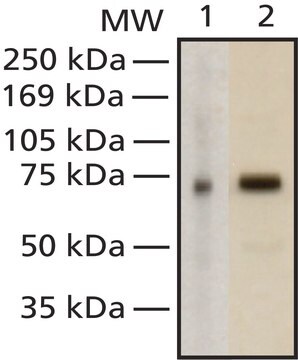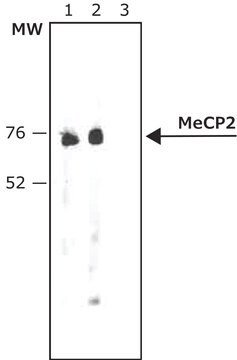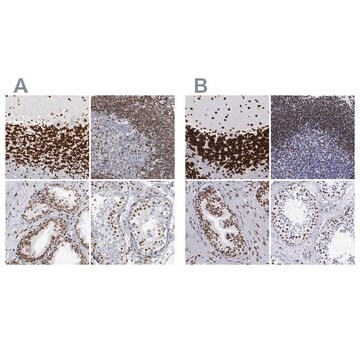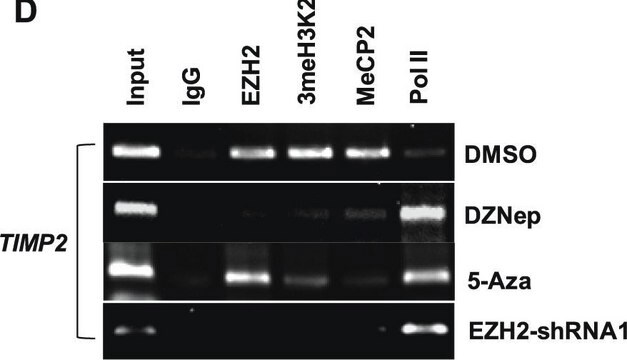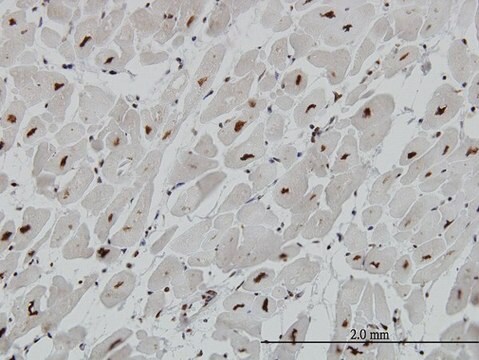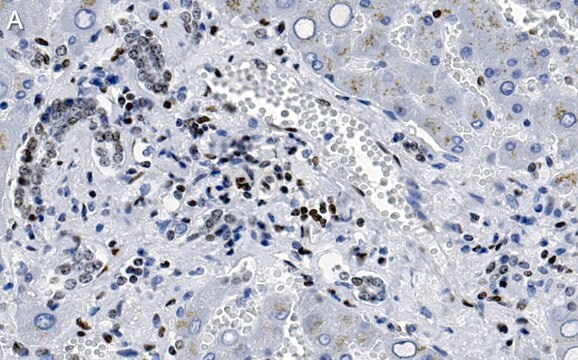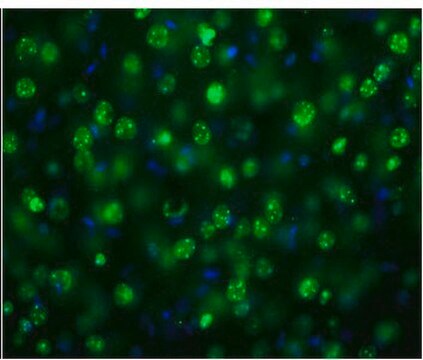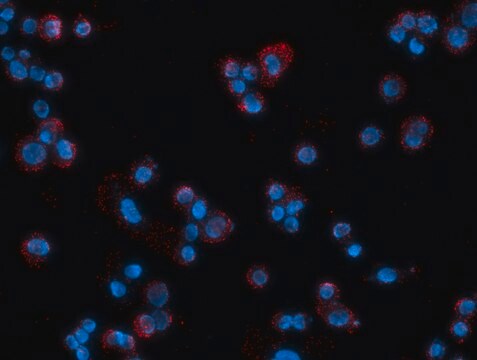Wichtige Dokumente
M6818
Anti-MeCP2 antibody, Mouse monoclonal
clone Mec-168, purified from hybridoma cell culture
About This Item
Empfohlene Produkte
Biologische Quelle
mouse
Qualitätsniveau
Konjugat
unconjugated
Antikörperform
purified from hybridoma cell culture
Antikörper-Produkttyp
primary antibodies
Klon
Mec-168, monoclonal
Form
buffered aqueous solution
Mol-Gew.
antigen ~75 kDa
Speziesreaktivität
rat, human, mouse
Verpackung
antibody small pack of 25 μL
Methode(n)
immunocytochemistry: suitable
indirect ELISA: suitable
microarray: suitable
western blot: 0.1-0.2 μg/mL using nuclear cell extract of cultured Jurkat, human acute T cell leukemia cells, or cultured MCF7 human breast carcinoma.
Isotyp
IgG1
UniProt-Hinterlegungsnummer
Versandbedingung
dry ice
Lagertemp.
−20°C
Posttranslationale Modifikation Target
unmodified
Angaben zum Gen
human ... MECP2(4204)
mouse ... Mecp2(17257)
rat ... Mecp2(29386)
Allgemeine Beschreibung
Immunogen
Anwendung
Immunoprecipitation (1 paper)
Western Blotting (1 paper)
- immunoblotting
- immunoprecipitation
- immunostaining
- enzyme linked immunosorbent assay (ELISA)
- immunocytochemistry
- western blot (0.1-0.2 μg/mL using nuclear cell extract of cultured Jurkat, human acute T cell leukemia cells, or cultured MCF7 human breast carcinoma)
Biochem./physiol. Wirkung
Physikalische Form
Haftungsausschluss
Sie haben nicht das passende Produkt gefunden?
Probieren Sie unser Produkt-Auswahlhilfe. aus.
Empfehlung
Lagerklassenschlüssel
12 - Non Combustible Liquids
WGK
nwg
Flammpunkt (°F)
Not applicable
Flammpunkt (°C)
Not applicable
Persönliche Schutzausrüstung
Eyeshields, Gloves, multi-purpose combination respirator cartridge (US)
Analysenzertifikate (COA)
Suchen Sie nach Analysenzertifikate (COA), indem Sie die Lot-/Chargennummer des Produkts eingeben. Lot- und Chargennummern sind auf dem Produktetikett hinter den Wörtern ‘Lot’ oder ‘Batch’ (Lot oder Charge) zu finden.
Besitzen Sie dieses Produkt bereits?
In der Dokumentenbibliothek finden Sie die Dokumentation zu den Produkten, die Sie kürzlich erworben haben.
Unser Team von Wissenschaftlern verfügt über Erfahrung in allen Forschungsbereichen einschließlich Life Science, Materialwissenschaften, chemischer Synthese, Chromatographie, Analytik und vielen mehr..
Setzen Sie sich mit dem technischen Dienst in Verbindung.